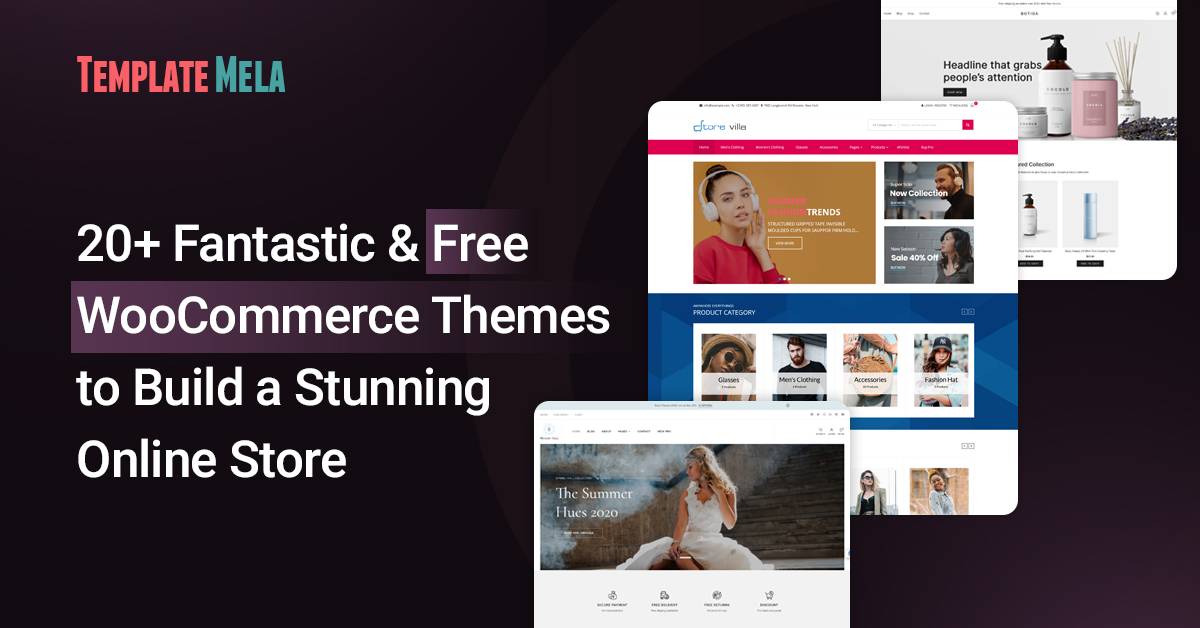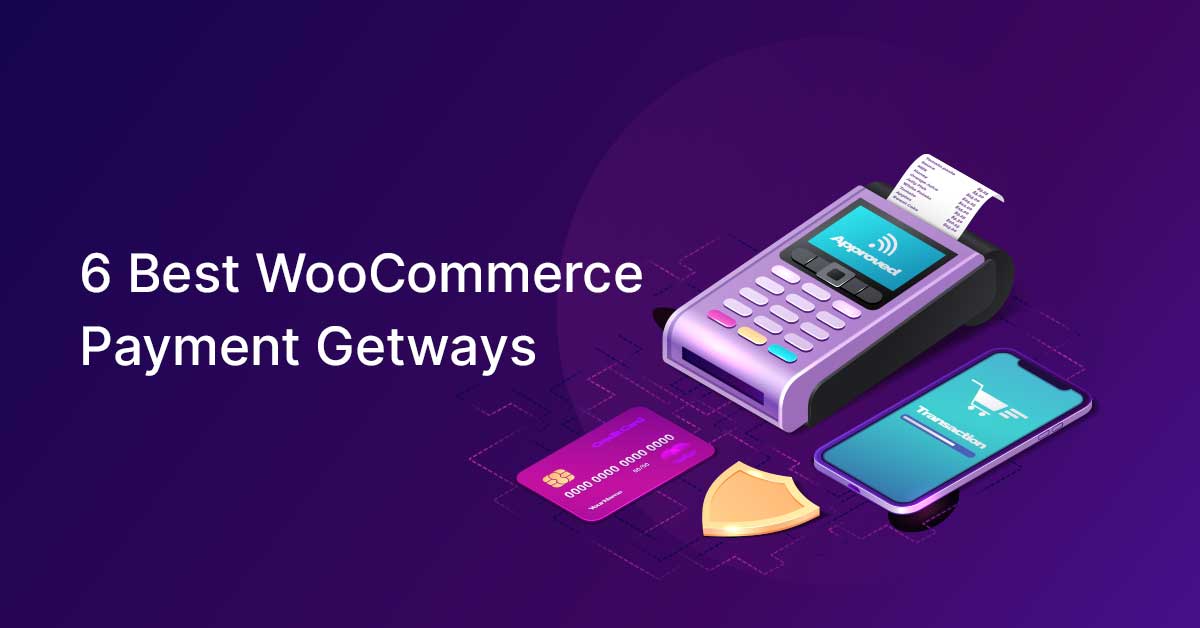Top 5 Free eCommerce Platforms To Build Growing Online Store In 2022
![Marketing 0 [2]](https://templatemela.com/wp-content/uploads/Marketing-_0-2.jpg)
Many mistakenly believe that, unlike a physical store, opening eCommerce is extremely simple and fast, without particular worries.
But these people come up against the harsh reality from the very beginning when they try to use an e-commerce platform to create their own online sales site.
Behind the best eCommerce sites like Amazon, there is indeed a huge job and creating such a site is far from easy.
However, this is not an impossible feat, and there are several easy-to-use and, most importantly, free tools that can facilitate the process of creating an e-commerce site.
In this article, we are going to discover the best free eCommerce platforms that allow you to create an online shopping website in the easiest way and, above all, for free as far as possible.
Of course, just building an eCommerce site is not enough to achieve success with your business, but it is certainly one of the most important steps for the success of a project.
How To Choose A Good Free Ecommerce Platform?
The first thing you should know is that there is a whole range of platforms that can serve as your solution for your online business.
This aspect indeed makes a choice quite difficult for the beginner of digital commerce. Because the latter finds himself in total embarrassment.
Before choosing the ideal e-commerce platform for the sale of your goods or services, you must think while analyzing your different needs.
Your analysis will have to be done in the short, medium, and then long term. It would therefore be a question of looking at the best way to proceed while considering your target’s needs and expectations.
Above all, avoid relying on the experiences of other e-merchants. Indeed, the solution that seems ideal for others may be ineffective for you.
Even if these platforms seem universal, their solutions differ and adapt to the needs and expectations of each person.
What Are The Most-used Free Ecommerce Platforms?
Here we have collected the 5 best & free eCommerce platforms with all of their pros, cons, and functionalities. Consider the below-given list while deciding on the platform to create eStore to grow your business.
1. WooCommerce

WooCommerce is the free eCommerce platform par excellence. It is specifically a plugin for WordPress, thanks to which you can transform a generic site into a real online store.
In addition to the economic aspect, the developers choose it because it offers infinite possibilities of customization and extension of the basic functions.
In fact, WooCommerce allows you to access hundreds of plugins (free or paid) to expand the functionality of the site. Also, it has a wide collection of excellent theme options to make your web development process faster.
It allows you to add any payment method, usually by simply installing plugins.
Among the most popular ways to receive payments are PayPal, Stripe, and Amazon Pay, but there is also the possibility of implementing a gateway for processing card transactions.
If you already have an online store and are looking for a solution to cash out online, take a look at our comparison of the best services for accepting online payments.
Its huge potential, however, requires familiarity with WordPress. If that’s not the case, WooCommerce is unfortunately not the solution.
Key Features Included In A WooCommerce Free Plan
- It has an easy installation process and use.
- One can add products with ease.
- It’s a flexible and secure platform.
- Add multiple payment gateways by just adding just plugins.
- Multiple currencies and multiple language support.
Limitations Of WooCommerce
- Requires multiple configurations
- You’ll need technical expertise to put the WordPress site up, manage the domain name, install the SSL certificate, and set up web hosting.
- This platform’s plugins can be somewhat costly at times.
- Quality lodging can be costly, for example.
2. Magento
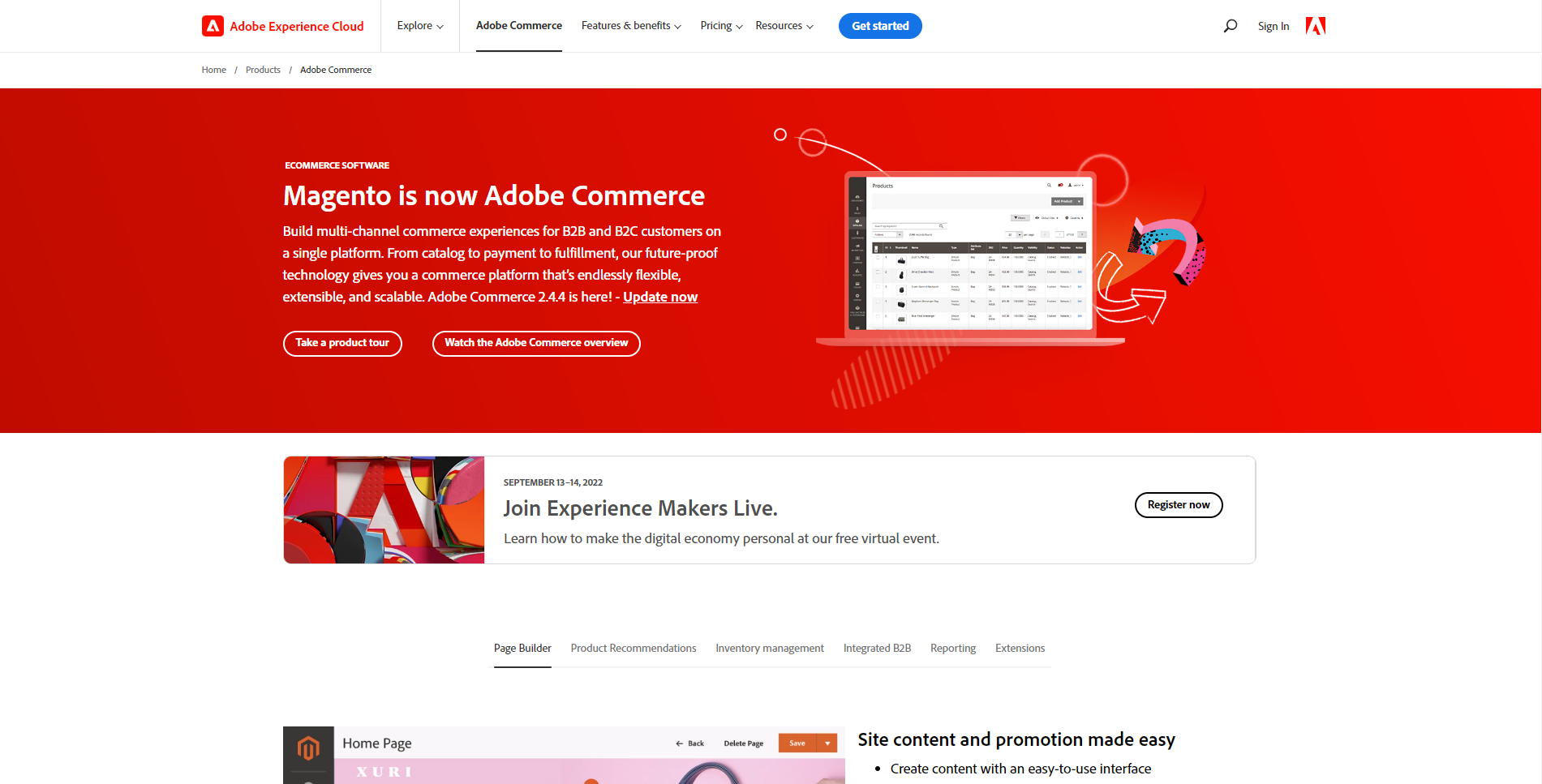
Magento Community Edition is an open-source and free eCommerce platform that is widely used throughout the world.
Used by the likes of HP and Burger King, this platform has countless features that include all the tools you need to open an online retail site.
It is suitable for those who already have experience in web development, but for this type of user, it is very intuitive.
It is scalable and upgradeable in a simple and immediate way.
It is the perfect platform if we are going to deploy a large catalog of products, and we plan to expand and grow over time.
Key Features Included In A Magento Free Plan
- It is designed for large stores with a large catalog, and that needs a lot of speed.
- We can create very complex product sheets.
- It has many different responsive templates and free modules.
- It allows multiple currencies and payment methods, multilingual and multi store.
- It is very secure, and the new versions of the platform reach the client without failure.
- It has a large community of extension developers and marketplaces.
Limitations Of Magento
- The code that handles Magento is complex and heavy, so experienced professionals are needed to create the store, organize the administration panel and carry out the rest of the functionalities.
- It has a large initial cost of hiring programmers and maintenance of its own server, not shared.
- Magento is heavy, and if we make a mistake at any stage, the store will take a long time to load, losing clients.
- Many of the translations in the default version are poorly done.
- The back office is not intuitive, and it takes a while to learn how it works.
3. Weebly

Weebly is the most generous of the free e-commerce platforms because it offers the most features and fewer limitations than the competition.
Weebly has everything to please start-ups and eCommerce businesses. The editor offers an intuitive and user-friendly back office that makes it easy to get started.
Also, based on the principle of drag and drop, the software does not require any knowledge of computer coding.
Weebly sites have been designed for web referencing, adapt perfectly to mobile interfaces, and are remarkably elegant.
It allows you to add an unlimited number of products. Nevertheless, it is very easy to use even by those who have no experience in the sector.
Key Features Included In A Weebly Free Plan
- The ease of use & simplicity makes the platform the preferred choice for everyone.
- The drag & drop editor allows quick changes with no tech skills.
- It has various apps in its official app store to extend the store’s functionality.
Limitations Of Weebly
- Limited space
- Without integrated payment
- Advertising presence
- Lack of quality support.
- It doesn’t allow you to optimize your site for mobile devices and tablets.
4. PrestaShop
The self-hosted or open-source solution is used by the e-commerce platform PrestaShop. This implies that you may download it and change it whatever you choose.
Although this option restricts your access to the code required for customization, it is more user-friendly than the open-source variant.
PrestaShop has integrated eCommerce features that let you make product listings that contain digital files, establish categories and subcategories for your items, keep track of inventory, set up a one-page checkout, and figure out taxes, make coupons and discounts, utilize SEO tools, and much more.
If you lack technical expertise or experience with the PHP coding language, you can think about hiring a web developer to guide you through the difficult parts.
Key Features Of PrestaShop
- Prestashop has a WordPress-like dashboard with navigation, full product listings, and search.
- PrestaShop’s product and catalog SEO are built-in. Built-in promos, discounts, email integration, etc.
- PrestaShop is a free, open-source platform that lets users build a completely configurable website in minutes. It simplifies eCommerce website creation.
- It supports payment channels including Amazon Pay, PayPal, Discover Global Network, Worldpay, Authorize.Net, and First Data. It has 250+ payment add-ons.
- PrestaShop offers multiple add-ons and themes, premium assistance as per your requirement, and an agent partners’ directory for employment.
Limitations Of PrestaShop
- PrestaShop has limited scalability. Therefore, this eCommerce platform suits small and midsize businesses, not large businesses.
- There’s no official PrestaShop support or professionals. This is the primary downside of this eCommerce platform.
- PrestaShop is free. However, domain and hosting charges are paid. However, the hosting selection is up to you. So, you can save. Customization costs are also included.
- To handle PrestaShop well, a shop admin requires programming abilities.
5. OpenCart
OpenCart is a free, open-source eCommerce platform that allows for extensive customization.
It offers a powerful administrator dashboard that shows vital indicators like sales, customers, and more.
OpenCart’s multi-store feature enables you to manage many shops from one interface.
This feature enables you to specify items for various storefronts, utilize unique themes for each, and localize your websites.
OpenCart’s product choices and characteristics are configurable, and the solution enables you to add more product variables.
OpenCart is adaptable and expandable like other eCommerce systems.
It features 13,00 modules and themes you may use to make your site unique.
Key Features Of OpenCart
- More than 13,000 extensions and add-ons to improve functionality are available in the OpenCart marketplace.
- Several different payment channels, such as PayPal and Sage Pay, are supported by the platform.
- OpenCart manages many shops from one admin interface.
- It has backup and restores tools.
- There is no limit to the number of goods, categories, and subcategories that users may establish.
- The portal has product reviews and ratings.
- OpenCart may be translated into 40 languages.
- Multicurrency is supported.
Limitations Of OpenCart
- There are few built-in marketing and SEO tools.
- The platform demands programming skills for customization.
- It might become pricey to expand on and extend.
- Self-hosted platforms need users to maintain and secure them.
Additional Options That You Could Consider
6. Wix (Free To Build Not To Sell)

Wix eCommerce is the ideal solution for creating a website and developing your business in the field of online sales.
Hundreds of templates are available and customizable according to your needs, which allows you to create a unique shopping experience by adapting each aspect of the site (showcase, presentation of items, basket, etc.).
Wix takes customization even further with comprehensive integrations developed to connect all the necessary tools, software, and runtime services.
Several sales channels such as Facebook, Instagram, Google Shopping, or eBay are integrated into the platform to reach as many customers as possible.
Products can also be sold anywhere in the world, and all activity is managed from a comprehensive and easy-to-use dashboard.
This intuitive platform allows you to create a professional e-commerce site at a lower cost and without sales commissions.
Key Features Included In A Wix Free Plan
- It has a drag-and-drop WYSIWYG editor to customize a site.
- It contains 500+ design templates that cover every business type.
- Unlimited bandwidth and 10 GB storage
- Easy coding and modern functionalities.
- With the included google analytics, It’s a great eCommerce website builder.
Limitations Of Wix
- The Wix favicon will be included in your site’s URL.
- Wix advertisements might be found on every page.
- You won’t be able to change templates or have a custom domain.
- Most crucially, the free plan does not allow you to collect payment.
- While you may build your store for free, you’ll have to pay once you’re ready to start selling.
7. Shopify (14 Days Free Trial)

It is not completely free (to get something similar for free as an alternative, we also recommend osCommerce), but we consider it as such because you pay mostly based on the turnover produced.
And we recommend it because it is one of the easiest free eCommerce platforms to use. Among the main advantages is performance because it is one of the fastest eCommerce platforms.
But also security because sensitive data and payments are managed with the highest standards for data protection.
There are many types of themes and templates, including many free. And finally, there are many add-ons to expand the functionality.
Shopify is an online commerce platform that is certainly not available in CMS mode but in SaaS mode.
Key Features Included In A Shopify Free Plan
- We can have a functional store in a few clicks, with the simplicity of installation and handling.
- It enables the tracking of orders and the creation of discount codes and coupons.
- Flawless extensions.
- Speed and lightness in terms of loading its interface.
- Highly competent technical support.
- A very good point-of-sale (POS) solution.
- Support service available full-time, 24 hours a day, seven days a week;
- Several payment gateways (70 in total) etc.
Limitations Of Shopify
- Limited customization.
- Being in the cloud, it does not allow source code modification or functionality extensions.
- A fairly low score in natural referencing.
- Non-personalization of the payment process.
- A drop in performance after the translation of the platform.
- It does not have enough flexibility to work SEO optimally.
- Doesn’t work well with large catalogs (not scalable).
- Payment platform: charges a monthly fee, from $9 to $179, and a commission for each operation carried out, from 0.5% to 2%, depending on the version contracted.
Final Words
Here you have seen the five free but most used free eCommerce platforms to create a fully functional eCommerce store.
In general, the ideal eCommerce platform does not exist to create your online sales store. Each company chooses its platform according to its needs.
You have to take a look at the products you promote, your turnover, but also the progress of your digital business.
The solutions listed above can serve as an eCommerce platform comparison if you are in trouble.
But know that whatever your expectations and objectives, you will find the platform that will suit your digital business.
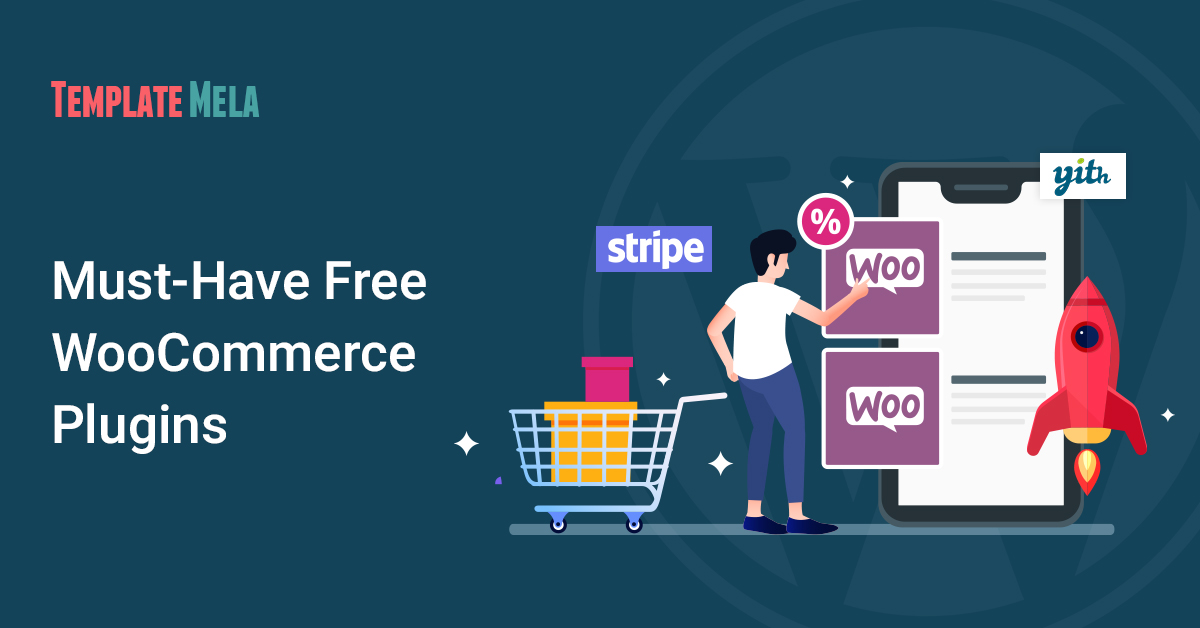
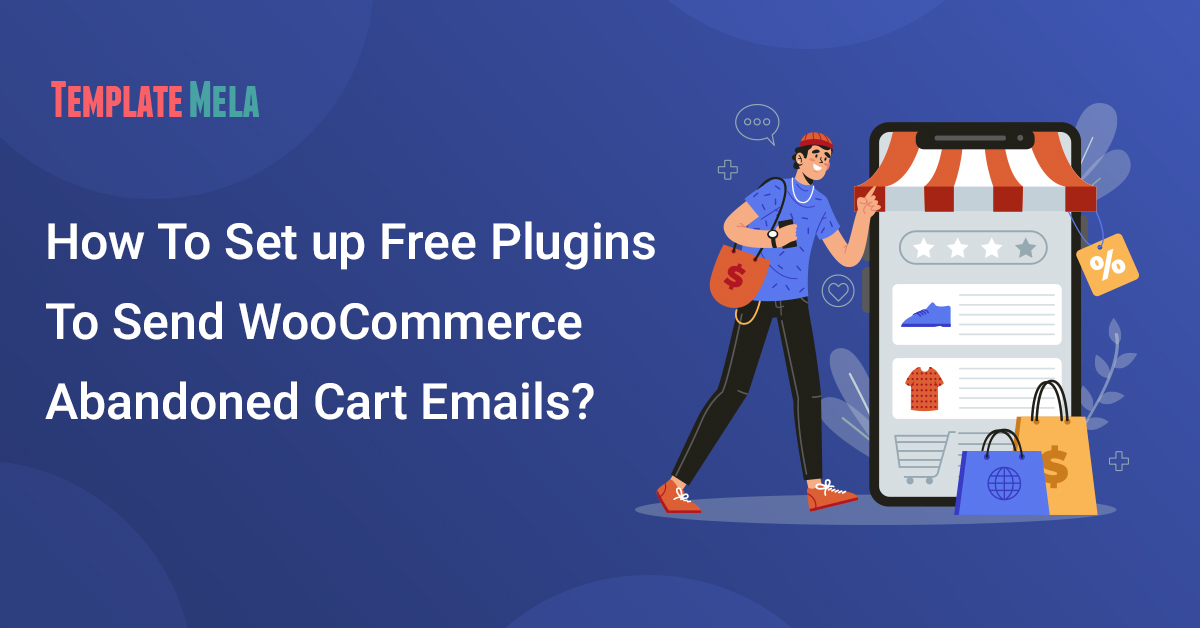
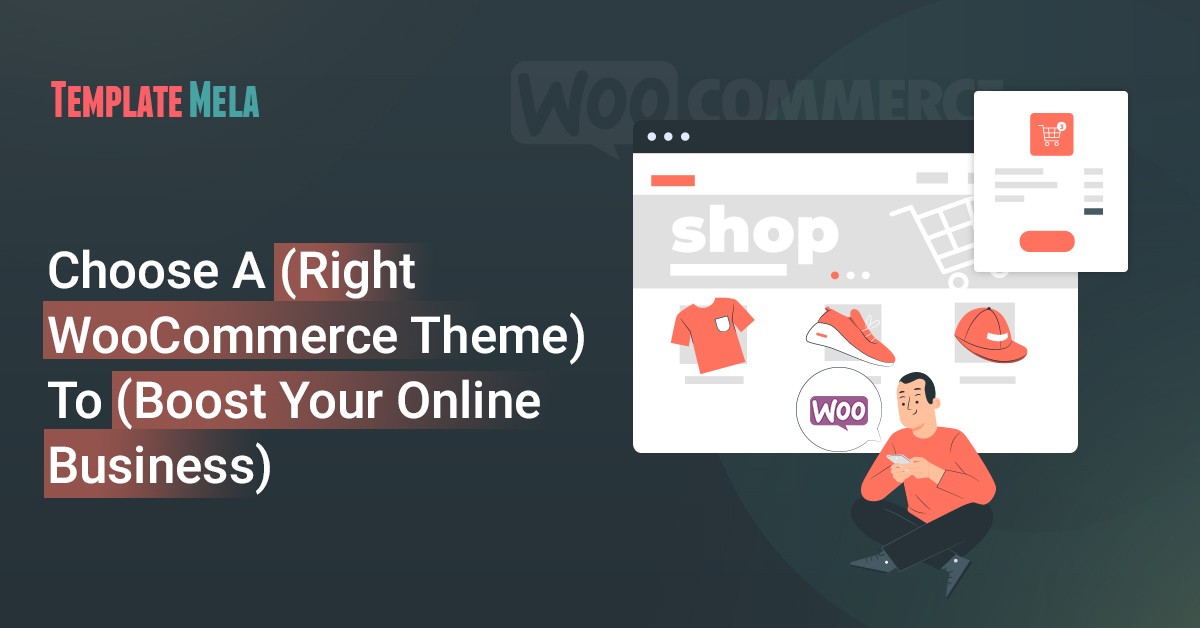
![21 eCommerce Trends You Must Be Aware Of [Apr 2022]](https://templatemela.com/wp-content/uploads/Marketing-1-1.jpg)
